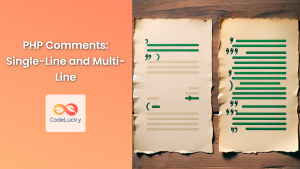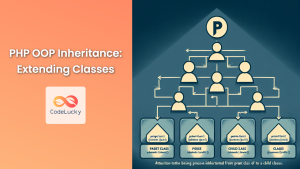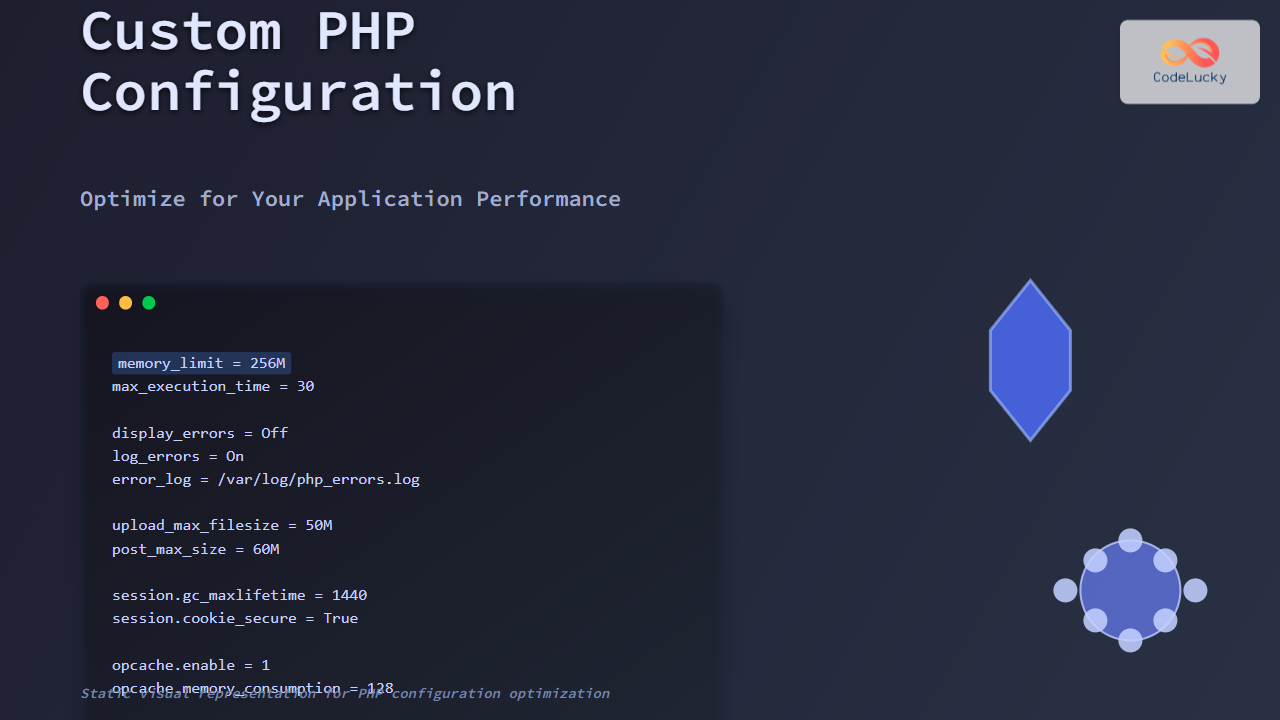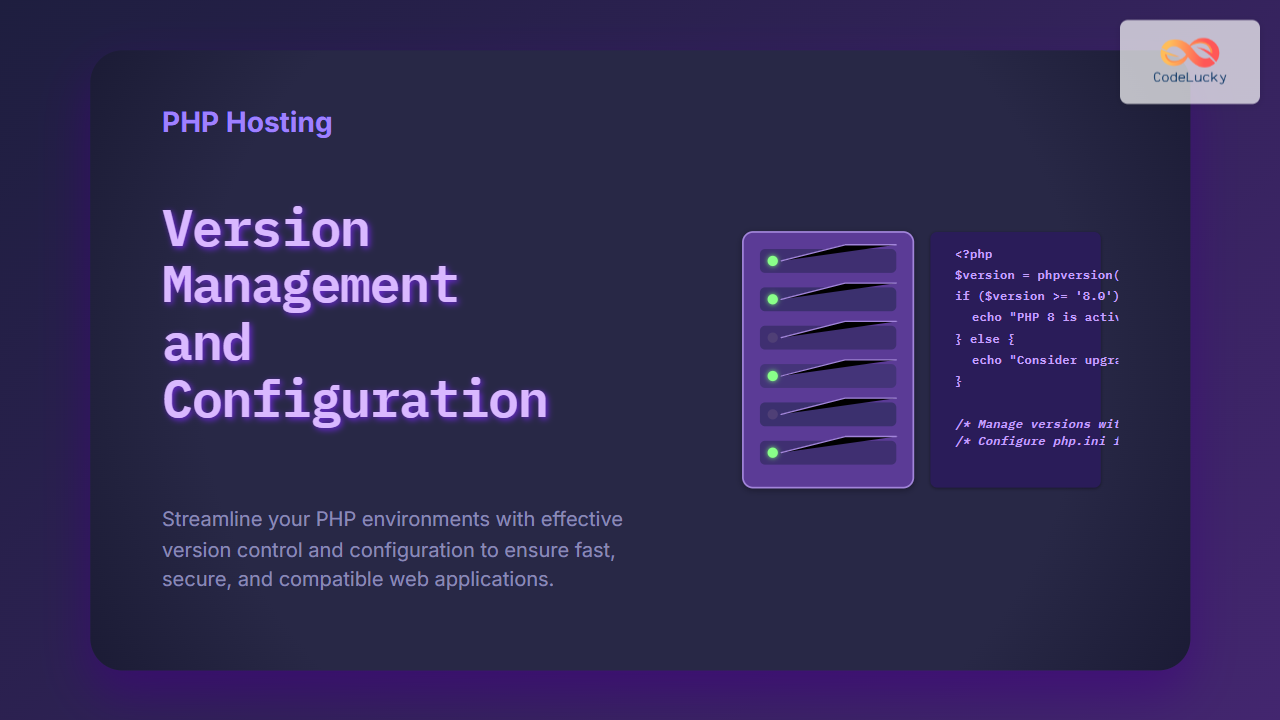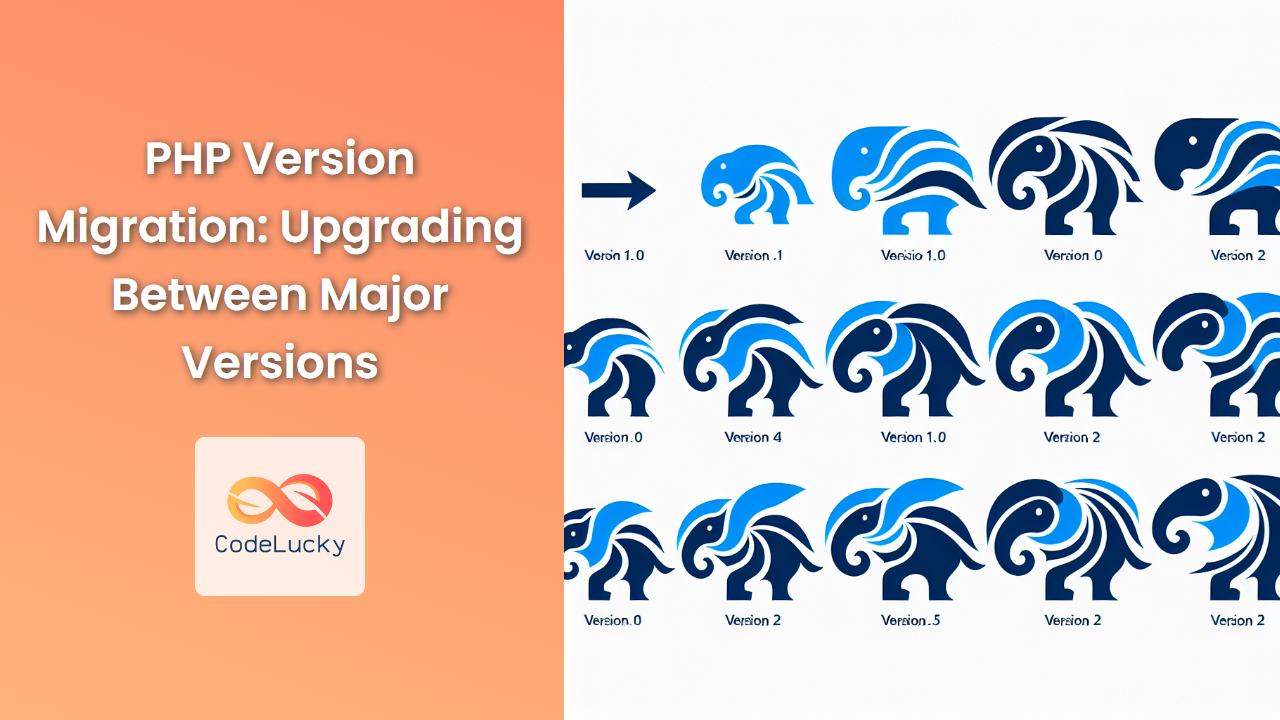In the world of PHP development, type hinting is a powerful feature that allows developers to specify the expected data types for function parameters and return values. This practice not only enhances code readability but also helps catch potential errors early in the development process. In this comprehensive guide, we'll dive deep into PHP type hinting, exploring its benefits, syntax, and real-world applications.
Understanding Type Hinting in PHP
Type hinting, introduced in PHP 5 and significantly expanded in PHP 7, is a mechanism that allows developers to specify the expected data type of a function parameter or return value. By doing so, PHP can perform type checking at runtime, ensuring that the correct data types are being used.
🔍 Fun Fact: Type hinting can lead to a performance boost in some cases, as the PHP engine can optimize code based on the known types.
Let's start with a simple example to illustrate the concept:
function greet(string $name) {
echo "Hello, $name!";
}
greet("Alice"); // Output: Hello, Alice!
greet(123); // TypeError: Argument 1 passed to greet() must be of the type string, int given
In this example, we've specified that the $name parameter should be a string. When we pass a string value, the function works as expected. However, when we try to pass an integer, PHP throws a TypeError.
Types Available for Hinting
PHP supports a variety of types for hinting. Let's explore each of them with examples:
1. Scalar Types
Scalar types include int, float, string, and bool.
function calculateArea(float $length, float $width): float {
return $length * $width;
}
echo calculateArea(5.5, 3.2); // Output: 17.6
echo calculateArea("5", "3"); // Output: 15 (strings are coerced to floats)
2. Array Type
The array type hint ensures that the parameter is an array.
function sumArray(array $numbers): int {
return array_sum($numbers);
}
echo sumArray([1, 2, 3, 4, 5]); // Output: 15
echo sumArray("not an array"); // TypeError: Argument 1 must be of the type array, string given
3. Object Types
You can hint at specific classes or interfaces.
class Person {
public $name;
public function __construct(string $name) {
$this->name = $name;
}
}
function introducePerson(Person $person): void {
echo "Hello, my name is {$person->name}.";
}
$alice = new Person("Alice");
introducePerson($alice); // Output: Hello, my name is Alice.
introducePerson("Bob"); // TypeError: Argument 1 must be an instance of Person, string given
4. Callable Type
The callable type hint ensures that the parameter can be called as a function.
function executeCallback(callable $callback, $value) {
return $callback($value);
}
$double = function($x) { return $x * 2; };
echo executeCallback($double, 5); // Output: 10
echo executeCallback("not callable", 5); // TypeError: Argument 1 must be callable, string given
5. Iterable Type
The iterable type, introduced in PHP 7.1, accepts either an array or an object implementing the Traversable interface.
function printItems(iterable $items): void {
foreach ($items as $item) {
echo $item . " ";
}
}
printItems([1, 2, 3]); // Output: 1 2 3
printItems(new ArrayIterator([4, 5, 6])); // Output: 4 5 6
6. Nullable Types
PHP 7.1 introduced nullable types, allowing parameters to accept a specific type or null.
function greetOptional(?string $name): string {
return $name ? "Hello, $name!" : "Hello, stranger!";
}
echo greetOptional("Alice"); // Output: Hello, Alice!
echo greetOptional(null); // Output: Hello, stranger!
7. Union Types
PHP 8.0 introduced union types, allowing multiple types to be specified for a single parameter or return value.
function processInput(string|int $input): string {
return "Processed: " . $input;
}
echo processInput("Hello"); // Output: Processed: Hello
echo processInput(42); // Output: Processed: 42
echo processInput(true); // TypeError: Argument 1 must be of type string|int, bool given
Return Type Declarations
In addition to parameter type hinting, PHP also supports return type declarations. This feature helps ensure that functions return the expected data type.
function divide(float $a, float $b): float {
return $a / $b;
}
echo divide(10, 2); // Output: 5
echo divide(5, 0); // DivisionByZeroError: Division by zero
Strict Typing
By default, PHP uses weak typing, which means it will attempt to coerce values to the specified type if possible. However, you can enable strict typing to enforce stricter type checks.
declare(strict_types=1);
function add(int $a, int $b): int {
return $a + $b;
}
echo add(5, 3); // Output: 8
echo add("5", "3"); // TypeError: Argument 1 must be of type int, string given
🔑 Key Point: Strict typing must be declared at the very beginning of the PHP file to take effect.
Benefits of Type Hinting
- Improved Code Readability: Type hints make it clear what kind of data a function expects and returns.
- Early Error Detection: Type mismatches are caught at runtime, helping to identify bugs earlier.
- Better IDE Support: IDEs can provide more accurate code completion and error detection.
- Self-Documenting Code: Type hints serve as a form of documentation, reducing the need for extensive comments.
- Performance Optimization: In some cases, the PHP engine can optimize code based on known types.
Real-World Example: Building a Simple Calculator
Let's put our knowledge of type hinting into practice by building a simple calculator class:
declare(strict_types=1);
class Calculator {
public function add(float $a, float $b): float {
return $a + $b;
}
public function subtract(float $a, float $b): float {
return $a - $b;
}
public function multiply(float $a, float $b): float {
return $a * $b;
}
public function divide(float $a, float $b): float {
if ($b == 0) {
throw new InvalidArgumentException("Cannot divide by zero");
}
return $a / $b;
}
public function power(float $base, int $exponent): float {
return pow($base, $exponent);
}
}
// Usage
$calc = new Calculator();
echo $calc->add(5.5, 3.2) . "\n"; // Output: 8.7
echo $calc->subtract(10, 4.5) . "\n"; // Output: 5.5
echo $calc->multiply(3, 4) . "\n"; // Output: 12
echo $calc->divide(15, 3) . "\n"; // Output: 5
echo $calc->power(2, 3) . "\n"; // Output: 8
// This will throw a TypeError
// echo $calc->power(2, "3");
// This will throw an InvalidArgumentException
// echo $calc->divide(10, 0);
In this example, we've created a Calculator class with methods that use type hinting for both parameters and return values. This ensures that our calculator operates on the correct data types and returns consistent results.
Best Practices for Using Type Hinting
- Be Consistent: Use type hinting consistently throughout your codebase.
- Use Strict Typing: Enable strict typing to catch type-related errors early.
- Combine with PHPDoc: Use type hinting in conjunction with PHPDoc comments for comprehensive documentation.
- Consider Nullable Types: Use nullable types when a parameter or return value can legitimately be null.
- Use Union Types Judiciously: While union types offer flexibility, overusing them can lead to less clear code.
Conclusion
Type hinting in PHP is a powerful feature that can significantly improve the quality and reliability of your code. By specifying expected data types, you create more robust and self-documenting code that's easier to maintain and less prone to errors.
As you continue your PHP journey, make type hinting a regular part of your coding practice. It's a small effort that pays big dividends in terms of code quality and developer productivity.
Remember, at CodeLucky.com, we're always here to help you on your path to PHP mastery. Happy coding! 🚀💻










